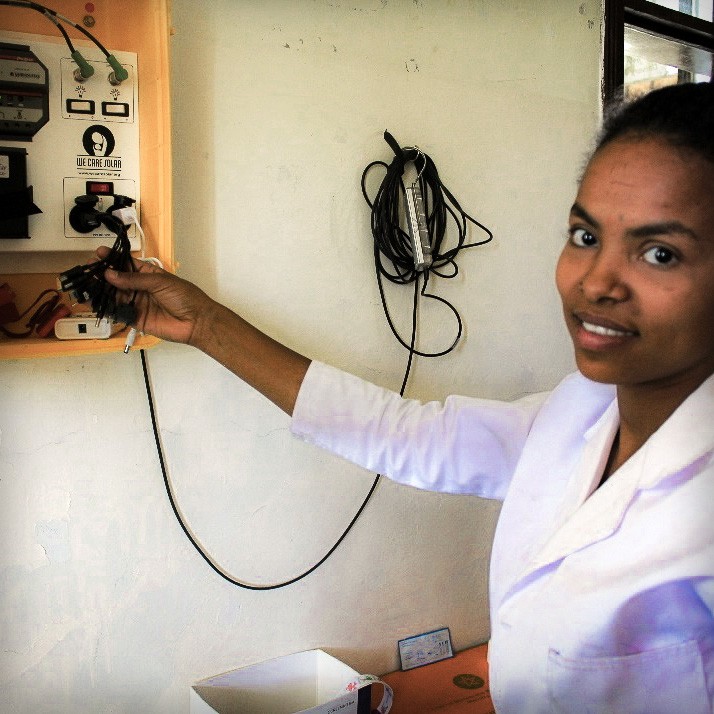Speeches Shim

In many parts of rural Ethiopia, villages aren’t connected to the power grid and—even where they are—power outages are common and can seriously impact health services.
Muluberhan Areaguy, who works as a midwife at Zalambessa health center, which helps approximately 28-35 women give birth each month, used to find it difficult to assist delivering mothers during the night in her town of Zalambessa, which is located 160 kilometers from Mekelle in the Tigray region.
In July 2018, the USAID Transform: Primary Health Care project donated a solar suitcase to the center in order to increase service quality. The project distributed a total of 100 of these suitcases throughout Ethiopia and trained public sector bio-medical engineers, technicians and project drivers on the installation and use of solar suitcases.
Muluberhan is grateful for how the donation has improved her ability to do her job, as well as the health outcomes of her patients. She explained how difficult it was to perform her role before receiving the solar suitcase, saying “Previously, during power outages, we required two people to assist with each birth as we needed someone to hold up a torchlight to perform the delivery.”
Power outages, especially during the rainy season, were a major challenge to quality of service. “We no longer worry about power outages. We can use our solar light and portable torch which we charge with the solar suitcase. During power cuts, we can also charge our phones to call an ambulance – this means that there is a quicker response time and lives are being saved as a result.”
Another major effect of this innovation is the use of a doppler transducer to monitor the baby’s heart rate. The center would previously use a fetiscope every 30 minutes to monitor the heartbeat of babies in the womb. A doppler fetal monitor, which is a hand-held ultrasound transducer used to detect the fetal heartbeat, is included in each solar suitcase pack donated by the project.
“Using the doppler to check a baby’s breathing means we can do antenatal check-ups right here in the center—whereas before, we used to send women to the hospital if we couldn’t hear a heartbeat. Our clients are delighted with this new equipment. Their confidence has grown since they can now hear their baby’s heartbeat for themselves. There have been no referrals due to a failure to hear babies’ heartbeats since we got the solar suitcase,” says Muluberhan.
USAID Transform: Primary Health Care (USAID Transform) is partnering with the government of Ethiopia to end preventable child and maternal deaths by strengthening the country’s health system. USAID Transform works in the regions of Amhara, Oromia, Tigray, and Southern Nations, Nationalities, and Peoples’ Region (SNNPR). Funded by USAID, the project is implemented by Pathfinder International, JSI Research & Training Institute, Inc. (JSI), Abt Associates, EnCompass, the Malaria Consortium, and the Ethiopian Midwives Association.

Comment
Make a general inquiry or suggest an improvement.